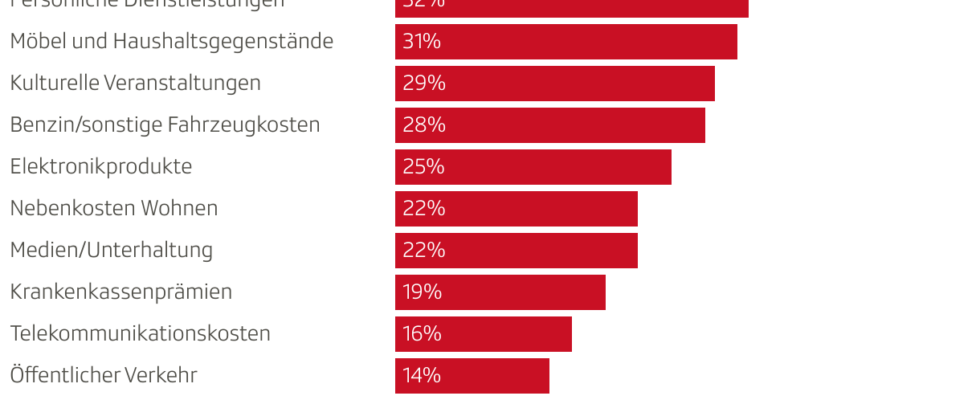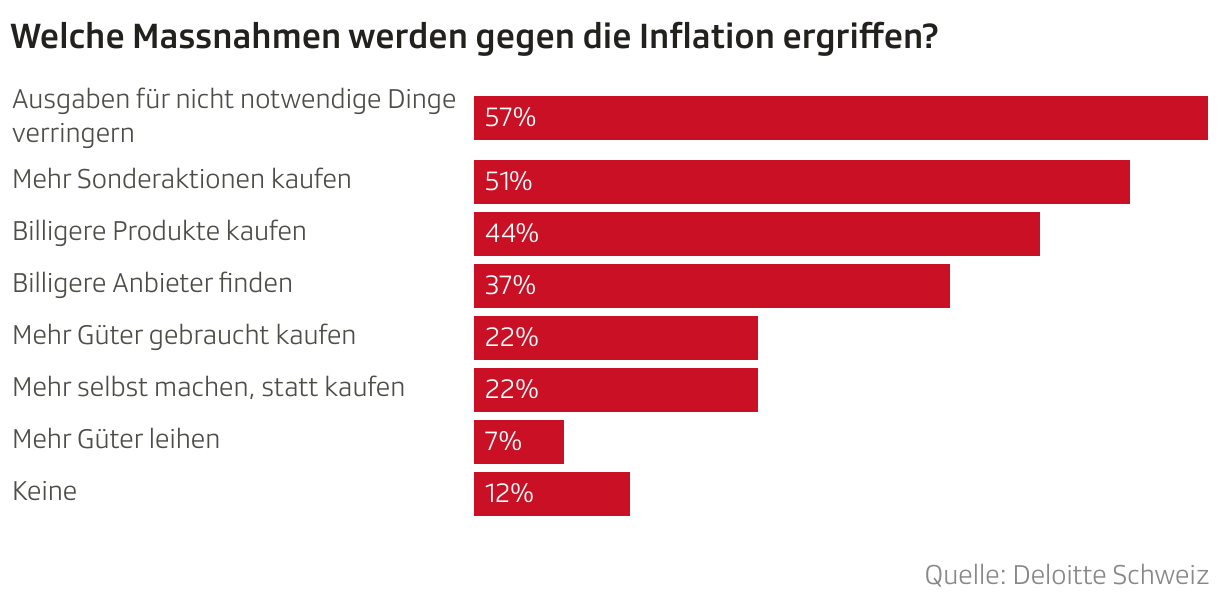Contents
Higher inflation in recent years is putting a strain on the Swiss population. This is now reflected in consumer behavior.
According to a survey of 1,900 people by the consulting firm Deloitte, financial pressure has increased for two thirds of those surveyed.
Even if inflation in Switzerland is relatively low compared to other countries, it is not negligible. “Both households and individuals often have relatively little in their wallets at the end of the month and have to calculate exactly what is left,” says Deloitte chief economist Michael Grampp.
Rich Switzerland is a cliché.
Savings are made on expenses that are not absolutely necessary. More than half of those surveyed reduced their spending on restaurant visits. Around 40 percent pay more attention to money when booking a vacation or buying clothes.
According to the study, there are differences between German-speaking Switzerland and French-speaking Switzerland. Among the Romands, the suffering caused by inflation seems to be higher than on the other side of the Röstigraben. 33 percent of those surveyed in French-speaking Switzerland said that inflation was a high burden, while for 40 percent it was a medium burden. In German-speaking Switzerland it is only 24 and 36 percent respectively.
In French-speaking Switzerland, people have less in their wallets at the end of the month.
This is easy to explain: “On the one hand, the tax burden is higher in French-speaking Switzerland, but on the other hand, there is a slightly higher unemployment rate there. This means that there tend to be more people there who have less money at their disposal,” explains Michael Grampp.
In addition to regional differences, the income class also plays a role. From the perspective of Assistant Professor of Health and Social Policy at the University of Lucerne, David Weisstanner, the lower middle class is particularly relevant: “These are people who, for example, do not benefit from reduced premiums and are often afraid of social decline.”
In addition to consumer behavior, the uncertainty could also influence political demands and promote populist attitudes.
Although the Swiss are tightening their belts, thrift does not seem to be causing a fundamental change in consumer behavior. Measures such as relying on used goods, making more yourself instead of buying or borrowing goods are only considered effective by a minority. However, providers who cater to price-conscious consumers and focus on an attractive price-performance ratio can score points.
Despite various savings efforts – David Weisstanner points out that the subjective perception of inflation does not necessarily have to go hand in hand with the actual inflation. “Significant price increases have been visible for some time in individual areas such as health insurance premiums or rents. People rely heavily on these individual aspects and form an overall picture that does not necessarily correspond to objective price developments in all areas.
However, the perceived inflation actually seems to have a greater influence on the Swiss population’s consumption decisions – even if the effective inflation may be lower than subjectively perceived.

